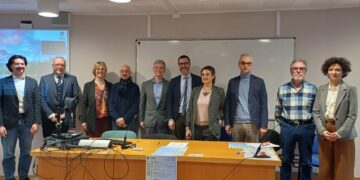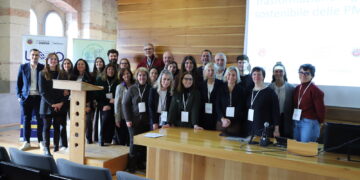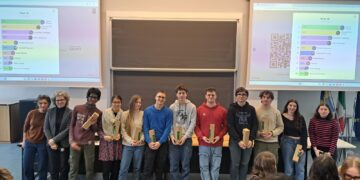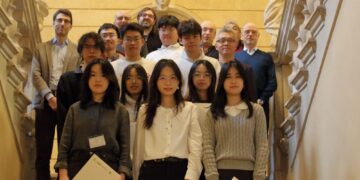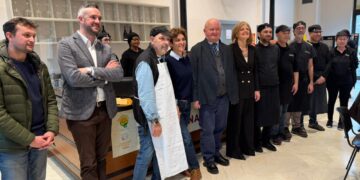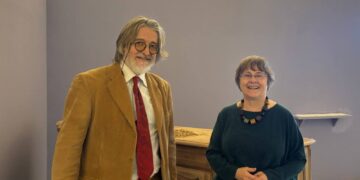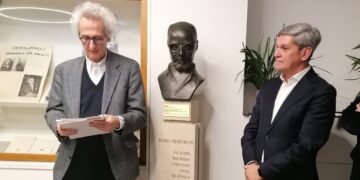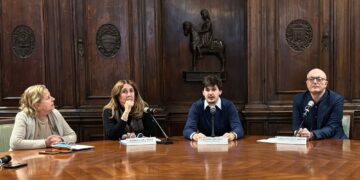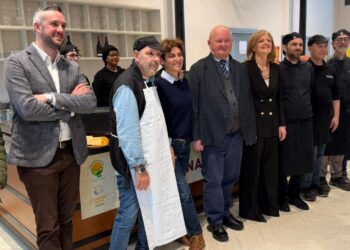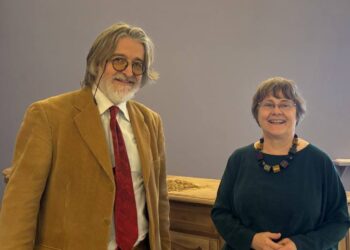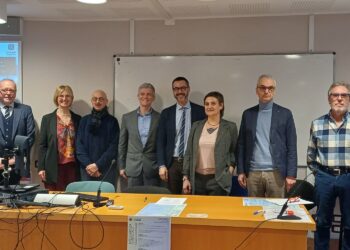On Thursday 10 October 2019 the Rector, Pier Francesco Nocini, will confer the Honorary Master’s degree in Medicine and Surgery on James P. Allison, winner of the 2018 Nobel Prize for Physiology or Medicine and Professor of Immunology at the University of Texas MD Anderson Cancer Center. The ceremony will be held at “De Sandre” lecture hall – Lente Didattica, G.B. Rossi Hospital (Piazzale Scuro 10, Verona), starting from 3 pm.
The awarding of an honorary degree to Prof. Allison was recommended by the University’s Department of Medicine headed by Oliviero Olivieri, upon proposal of the Director of the Immunology section, Vincenzo Bronte, based on “the enormous impact of Allison’s discoveries on medical practice. The therapy known as Checkpoint Blockade has revolutionised the treatment of certain types of cancer such as melanoma and lung cancer, allowing to prolong the survival of patients with widespread metastases that are not responsive to conventional therapies”.
The ceremony will be introduced by Pier Francesco Nocini, Rector of the University of Verona, Alessandro Mazzucco, President of Fondazione Cariverona, Domenico De Leo, President of the School of Medicine and Surgery, and Oliviero Olivieri, Director of the Department of Medicine. The laudation by Vincenzo Bronte, Director of the Immunology section of the University of Verona will precede the lectio magistralis by James P. Allison “Immune Checkpoint Blockade in Cancer Therapy: historical perspective, new opportunities, and prospects for cures”.
The ceremony will be followed by a musical performance by Deborah Kooperman, American musician and folksinger.
Born in Alice, Texas, in 1948, Allison trained at Scripps Research under the immunologist and Professor Emeritus Ralph Reisfeld, researching human leukocyte antigens and T-cells, and exploring the role these proteins play in enabling the immune system to distinguish self from invaders. In 1977, Allison and a colleague, G. N. Callahan, reported in a letter to the scientific journal Nature that they had found evidence that the immune system was prevented from attacking cancer cells due to antigens’ association with additional proteins.
Finding the factors that inhibited the attack of the immune system on cancer has been key to developing immunotherapies to stop cancer development.
Allison’s research to analyse mechanisms of T-cell responses was conducted in the late 1980s at the University of Texas M.D. Anderson Cancer Center, and in the 1990s at the University of California, Berkeley. In 1996, Allison was the first to demonstrate that antibody blockade of CTLA-4 could lead to enhanced anti-tumor immune responses and tumor rejection.
This concept of blocking T-cell inhibitory pathways as a way of unleashing anti-tumor immune responses and eliciting clinical benefit laid the foundation for the development of other drugs that target T-cell inhibitory pathways, which have been defined as “immune checkpoint therapies”. In recent years, Allison has begun studies on immune reactions in cancer patients responding to immunotherapy and has established an immunotherapy programme at the MD Anderson Cancer Center to study immune responses in cancer patients.




